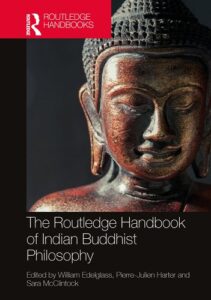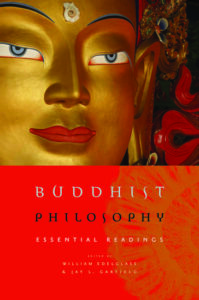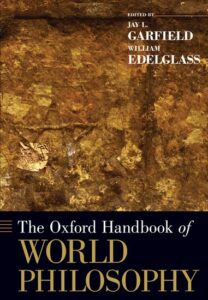William
Edelglass
William Edelglass is Director of Studies at the Barre Center for Buddhist Studies. Previously, he was Professor of Philosophy at Marlboro College in Vermont. William has also been a visiting professor at the Institute of Buddhist Dialectics (Dharamsala, India), the Central University for Higher Tibetan Studies (Sarnath, India), and the Indian Institute of Technology—Bombay. He has taught for Emory University’s Tibetan Studies Program in Dharamsala and more recently served as Director of the Smith College Tibetan Studies in India Program.

William leads Buddhist retreats at BCBS, Wonderwell Mountain Refuge, the Insight Meditation Society, and elsewhere. In addition to teaching several dozen undergraduate and graduate philosophy courses, William was an instructor leading wilderness trips for Outward Bound, taught philosophy in a federal prison, and taught environmental philosophy as part of the Chinese Academy of Social Science and the Royal Academy of Philosophy joint program for Chinese philosophy professors in Shanghai. He is currently on a seven-year leave of absence from his tenured position at Emerson College in Boston.
William has a broad background as a scholar and a practitioner. He has practiced in Zen, Tibetan, and Theravāda traditions. As a scholar, William’s work engages Buddhist studies, environmental humanities, and philosophy. William’s recent publications have addressed Śāntideva’s approach to mindfulness and ethics; Buddhism, happiness, and the social science of meditation; phenomenology, climate change, and the ethics of difference; the role of Buddhism in B. R. Ambedkar’s political thought; B. R. Ambedkar’s Buddhist approach to violence, nonviolence, and antiviolence; Buddhism and the environment; the role of faith in Indian Buddhist literature on the path; and Buddhist practice and the limits of language. William has had a particular interest in the work of the twentieth-century Jewish philosopher, Emmanuel Levinas. His publications on Levinas include articles on Levinas’s approach to suffering and compassion, language, responsibility, and his reading of Dostoevsky as well as the co-edited volume, Facing Nature: Levinas and Environmental Thought. William has also published on other themes and figures, such as place-based pedagogy, truth in art, animals, and deep ecology.
For an overview of some of William’s scholarly interests, see this 2018 interview on his work with 3: AM Magazine and this interview on the Imperfect Buddhist podcast. For his reflections on B. R. Ambedkar for Indian Buddhist practitioners, see this interview with William that was broadcast on Indian television. And here is something William wrote on why contemporary thought from outside Buddhist traditions can be beneficial for practicing Buddhists.
For more than a decade William served as co-editor of the journal Environmental Philosophy and he has served on the editorial board for a number of other journals. William was Co-Director and Chair of the Board of the International Association of Environmental Philosophy for seven years. Closer to home, William is the principal scholar of the Brattleboro Words Trail, a project funded by the National Endowment for the Humanities to build community through place-based collaborative humanities work.
William’s projects have been supported by grants from a number of organizations, including the Templeton Foundation, the Lenz Foundation, the National Endowment for the Humanities, the Japan Studies Association, the Sachen Foundation, and the Hemera Foundation.
William is often invited to speak at colleges and universities in North America, Europe, and Asia.
He lives on a homestead with his family in southeastern Vermont.
Recent Presentations
- “Violence, Nonviolence, and Antiviolence in B. R. Ambedkar’s Buddhist Thought.” Exploring Nonviolence: Social Justice, Gender, and the Brain. Plenary address at the American Academy of Religion, San Diego, CA. November 22-26, 2024.
- “B. R. Ambedkar, Liberation Ecology, and Buddhist Environmental Justice.” Opening keynote address, “Environmental Ethics and Vulnerability in Western and/or Buddhist Philosophy,” International Conference at the University of Verona, Verona Italy. October 24-26, 2024.
- “Culture, Well-Being, and Universality: Questions and Contexts for Contemplative Research.” Opening keynote address, International Society for Contemplative Research, San Diego, CA, February 3, 2023.
- “Reading C. W. Huntington.” Keynote address, “Religious Studies as an Approach to Life and Death.” Center for Culture, Society, and Religion, Princeton University, September 9, 2022.
- “Buddhism, Poetry, and Ecological Consciousness.” Keynote address at the Swiss Biennial on Science, Technics, and Aesthetics. Lucerne, Switzerland, January 18, 2020.
- Commencement Address, Graduate Institute, St. John’s College, Sante Fe, NM. August 4, 2017.
- “Why the Bodhisattva Isn’t Satisfied: Buddhism, Happiness, and Ethics,” Smith College Buddhist Studies and the Barre Center For Buddhist Studies Collaborative Lecture Series, at Smith College, Northampton, MA, February 11, 2016.



